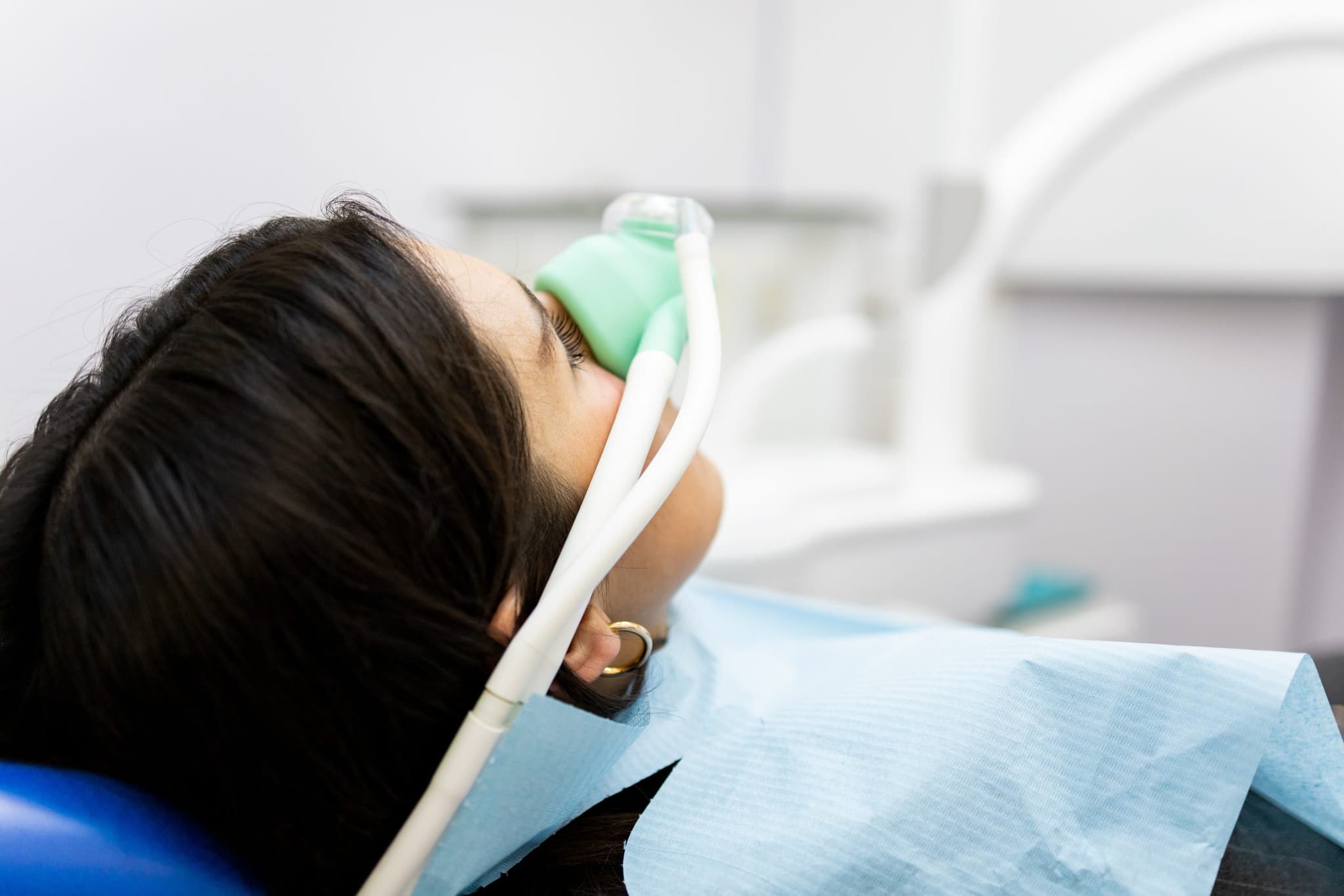
2025-12-17T17:11:43
Why OBGYN Clinics Are Using Nitrous Oxide for Pain Relief
- OB/GYN
May 16, 2018 | OB/GYN • Value-Based Care
Specialties:OB/GYN

Even if you don’t feel sick, it’s important to visit your doctor annually. At those annual visits, your doctor can recommend screenings, laboratory testing and immunizations, and offer counseling on other aspects of health based on your risk factors.
Here are what screenings you can expect to maintain your health as you age.
What is it?
A well-woman exam is a check-up that focuses on preventive care. During these visits, your doctor will discuss your medical history with you, complete a physical exam and provide counseling on different aspects of health.
How often should I get one?
Women should get a well-woman exam annually starting at age 21.
What is it?
Pap smears (or Pap tests) detect abnormalities and cancerous tissue in the cervix. During a Pap test, your doctor will use a brush to collect cells from the cervix. These cells are then sent to a laboratory for evaluation. The same cells can be tested for the presence of human papillomavirus (HPV), which can cause cancer.
How often should I be tested?
Women ages 21-29 should get a Pap test every three years. Women ages 30-65 should get a Pap test in conjunction with an HPV test every five years or a Pap test alone every three years.
Women age 65 or older may stop testing if they have had three or more normal Pap tests in a row and no abnormal results in 10 years.
Exceptions
Women who have had a hysterectomy with no residual cervix or cervical agenesis (a rare congenital disorder) do not need a Pap test. If you’ve only had a partial hysterectomy, you will still need testing. Talk to your doctor about when and how often you should be tested.
What is it?
A urinalysis can detect the presence of chlamydia and gonorrhea, which are sexually transmitted bacterial infections. Both infections may not cause any symptoms, but when left untreated can cause complications including infertility, miscarriage and numerous health problems in babies born to infected mothers.
How often should I be tested?
Women should begin testing for chlamydia and gonorrhea as soon as they become sexually active. Doctors recommend yearly testing until age 25. Older women may also need testing if they are at an increased risk of infection. Common risk factors include new or multiple sexual partners.
What is it?
HIV harms your immune system by lessening your body’s ability to fight infections. HIV also leads to AIDS, the dangerous, final stage of HIV. Your doctor can test for HIV using a blood sample.
How often should I be tested?
If you are sexually active, you should get tested for HIV at least once. It’s also important for your partner(s) to get tested. Women who are pregnant should be tested early in pregnancy. The frequency with which you should be tested also depends on your risk factors. Typically, those who are high risk need annual testing.
What is it?
A clinical breast exam is often part of your well-woman exam. These exams, performed by a trained healthcare professional, can help detect early signs of breast cancer.
How often should I get an exam?
Women in their 20s and 30s typically complete clinical breast exams approximately every three years in addition to monthly self-examinations. Women in their 40s may be offered this exam annually.
What is it?
Mammograms are a form of imaging technology that detects masses in the breast. They are extremely important in detecting breast cancer in its earliest stages while it is easiest to treat and cure.
How often should I get a mammogram?
The American College of Obstetrics and Gynecology recommends women should get their first mammogram in their 40s every 1-2 years. Depending on your risk factors, however, you may need screening at an earlier age or more frequently.
Exceptions:
Women who have had a bilateral or two unilateral mastectomies do not need a mammogram. Many women discontinue mammograms around age 75. Your doctor can determine when mammograms are no longer necessary.
What is it?
A blood glucose test helps detect early signs of rising blood sugar levels, which is a risk factor for diabetes. The test is simple and involves a small blood sample via finger prick or blood draw from a vein. You may also be asked to fast for eight hours prior to a blood glucose test to provide more accurate results.
How often should I be screened?
Several studies show that blood glucose rises with age, so it’s important to start getting screened every three years around age 45. You may need to start screening earlier if you have risk factors of diabetes such as a family history of diabetes, high blood pressure or cholesterol, a history of cardiovascular disease, obesity, or gestational diabetes.
What is it?
Colorectal cancer screening is important to identify and remove precancerous polyps or early cancer. There are several different methods of colorectal cancer screening, but colonoscopy is the most effective method.
How often should I be screened?
Most doctors recommend screening starting at age 50, but this recommendation depends on your risk factors (such as family history of colorectal cancer) and which method of colorectal cancer screening you choose. Talk to your doctor about which screening schedule is right for you.
What is it?
Doctors measure the levels of calcium and other minerals in your bones using a DEXA scan to detect signs of osteoporosis. DEXA scans are simple and painless. Bone density tests can also determine how well osteoporosis treatment is working.
How often should I be tested?
Most women start screening at age 65, but you may need screening earlier if you’ve suffered a fracture. Like most screenings, the frequency depends on your age and risk factors. The standard recommendation is every two years.
Depending on your personal health status, you may need additional screenings including those for lung cancer and thyroid disease. Work with your doctor to determine a screening schedule that fits your health needs.

WRITTEN BY:
The Live Better Team

2025-12-17T17:11:43

2025-11-21T14:10:25

2024-09-19T11:59:35

2023-07-10T16:46:58
This information is not intended to replace the advice of a medical professional. You should always consult your doctor before making decisions about your health.